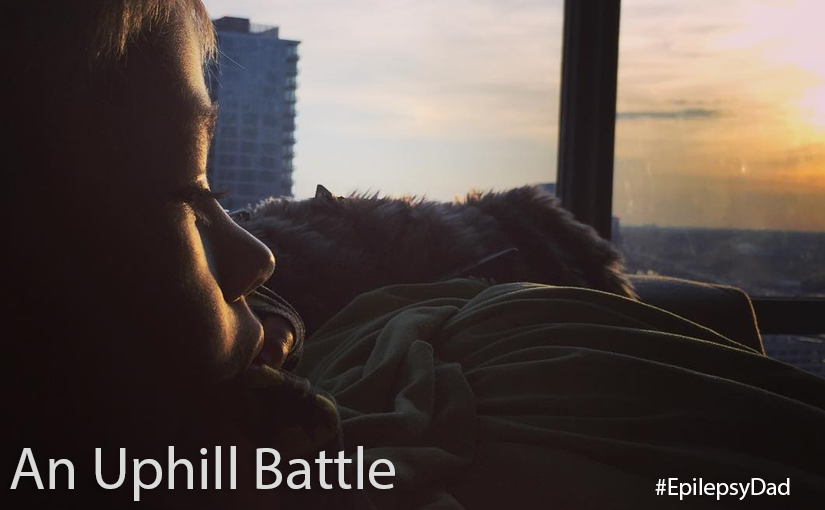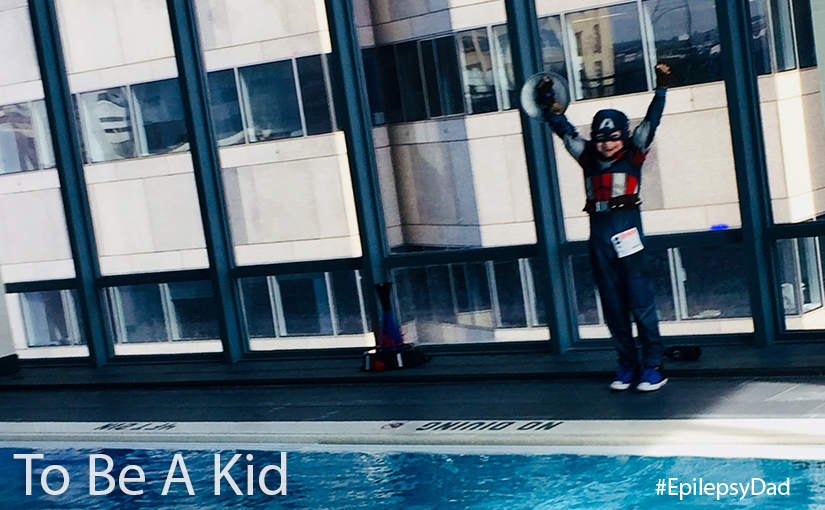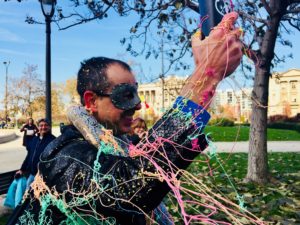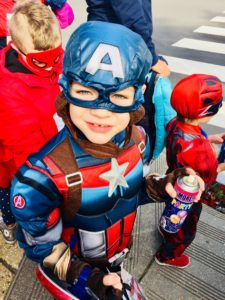I came home and everyone was sitting at the kitchen table. The topic of conversation was about how good a day my son had. A smile flashed across my face. We haven’t had a lot of those lately, and this sounded like a really good day.
My wife made a strong case for possibly his best day in months as she described what had happened. She told me that his aide at work commented about him being his old self. My son jumped in, adding emphasis to his trip to the library and the Lego club he discovered there. The energy in the house was amazing, and we held on to it all evening.
Over the past few months, we’ve been adjusting my son’s medications. It is a hard time for everyone as we try to manage the seizures and side effects that always follow. Insomnia, fatigue, and emotional and behavioral issues disrupt everything about his life. I saw the turmoil inside of him taking a toll, and his bouts of sadness shred my heart to pieces. I was so happy for him to get a win.
It wasn’t until we started to get ready for bed that we noticed that he didn’t get his morning medication. In the 1,128 days that we’ve been giving him medication for his seizures, this is only the third time that we screwed up. In the past, if we get off-schedule for his dosing, we saw signs that raised an alarm. He might have a seizure during the day or more during his nap. But this time, there were no signs like that. Only a really good day.
We scrambled to get him back on track, but the inevitable happened. He had more seizures that night than he has had in while. The next day, his behavior was erratic and it took most of the day to get him settled down. Over the course of the next couple of days, both his seizures and his behavior started to level off.
Before we knew about the missed medications, we thought that we had cracked the code. His head has been swimming in medication for so long but we continue to look for the right mix. We lower the dosage on ones that put him in the haze and increase the dosage on ones that help his seizures. We thought that with this latest combination we found that balance.
But instead of a solution, what we spotted was an anomaly. A single, dangerous moment of lucidity. I picture him suspended in a sea of medication. It slows his movements, makes it hard to think and to see and to be himself. That day, he was finally able to reach the surface. He was able to take one big breath and see the world around him. We could see him, too, as his head broke into the open air. Then we watched as he was slowly pulled back under.
Was this a glimpse of the boy behind the seizures and the medicine and the side effects? Is he gone again? Lost beneath the surface of his condition? Or was it a coincidence? He has had some pretty good days before. Are we are trending in the right direction and that really good day was a sign of things to come?
The answer to those questions is the same frustrating answer it always is. Wait and see. It’s the same answer when we change medications. It’s the same answer when we start a new treatment or therapy. Everything is so unpredictable that we just have to wait and see. But this time, the stakes seem higher because we’re trying to figure out if what we saw was our son or a mirage.
Deep down, I know what the answer is. The reality is that it was my son. But it is him on the other days, too. He is whoever he is in front of us on any given day. That’s the reality of his condition. The good and the bad. The sweet, gentle boy and the sad, angry boy. The lucid and the drugged. The boy who can face any challenge and the boy who wants to hide and be alone.
Sometimes, I get so wrapped up in the differences between the two that I wind up chasing the mirage. I focus on the way things should be because I want his life to be easier. To be better. But when I do that, I leave my son behind. I miss out on the gifts that we are given instead of simply being grateful that my son is here and that he had a really, really good day.





